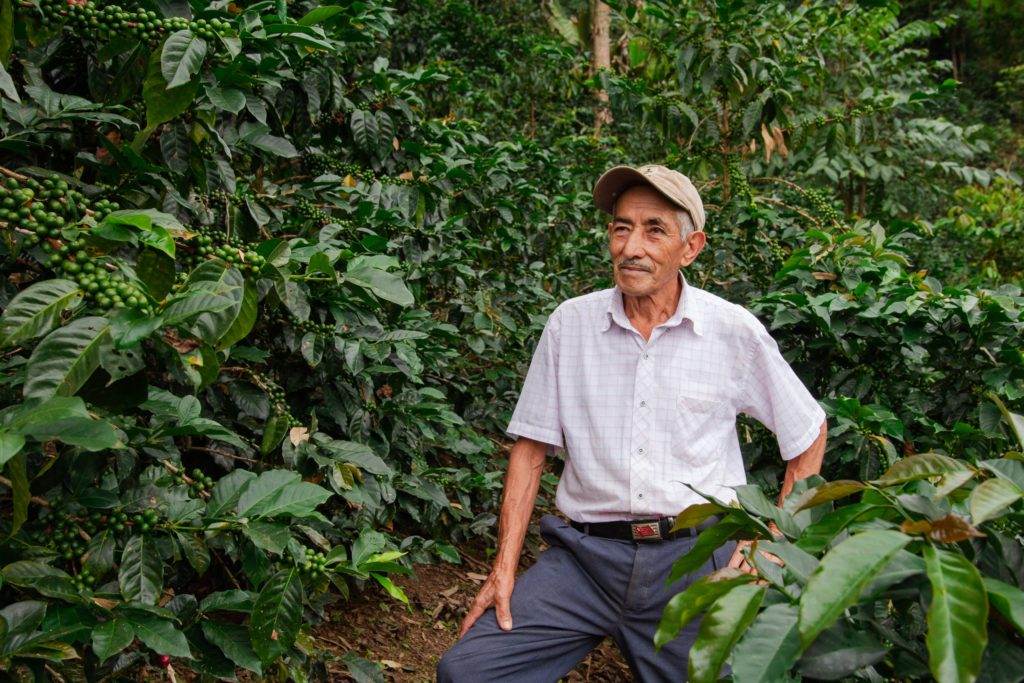Coffee production is the economic engine of many tropical countries with millions of people depending on coffee farming and related activities.
Despite the economic importance of coffee, being a coffee farmer in Peru or Bolivia is a constant struggle because of the poor soil, small pool of buyers and the impact of climate change, including more frequent and severe floods and droughts. Fluctuating product prices and remote locations are two more hardships.
Many farmers struggle to feed their own families. In desperation, people are leaving rural areas to look for work in the cities. This causes its own problems, as urban infrastructure fails to keep up with migration. Farmers who remain often resort to destructive farming practices that aren’t sustainable and damage the environment.
Our agroecology approach has transformed rural communities in the cloud forests of Latin America. We approached this challenge with a package of interventions that included development of agroforestry techniques and harnessing the power of the sun and running water to bring electricity to remote rural areas. We helped to reintroduce native seeds that are well-suited to the variable soil quality. By helping people form co-operatives and access funding, we were able to help electrify businesses and make farming more profitable.
New equipment and techniques have been introduced, alongside training and skill sharing on-location. The introduction of layering and other agroforestry techniques has diversified crops, shaded coffee plants and enriched the soil without using chemicals. It has also reduced the carbon produced from coffee production.
We’ve worked with over 10,000 smallholder farmers directly and through cooperatives. The agroforestry approach has increased the productivity and quality of coffee crops – increasing their value and marketability. With our support, farmers are now able to feed their families and have enough produce left over to sell for a profit. They use the money to buy more nutritious food for their families, educate their children, reinvest in their businesses, repay loans and make improvements to their homes to help them withstand disasters. And our solutions are sustainable, so they help to preserve the region’s unique ecosystems.

For decades, Genaro was unable to make a profit from his farming business. He also witnessed first-hand the deforestation caused to the environment by damaging farming techniques. Now, he is able to enjoy the prosperity of his farm and the beautiful local environment he has helped protect.
The evidence generated by our agroforestry work with coffee has now been adopted by people farming other crops, such as cocoa and bananas. It’s being used by other organisations in the region, including World Wildlife Fund. Our agroforestry model is now identified in the National Climate Change Initiatives as a sustainable, effective approach to reduce carbon emission and make coffee production environmentally sustainable (as well as profitable for smallholders).
“Thanks to the technical training programme provided by Practical Action, I’m making a bigger profit. Almost all my coffee has been of good quality and I have had good returns even in difficult times. With this project, farmers in this area have become almost like a family. We’re working together towards a shared goal.” Genaro Alarcón Pérez, a coffee farmer in Santa Fe, Peru
Farming with flex
Farming practices are strongly determined by the local environment, which varies dramatically from place to place. This variation creates a challenge for us because it makes it difficult to create a common agroecological approach that can be replicated in different places.
That’s why we’re so excited about the flexible model for agroecology that we’re developing – we’re confident that it will be adaptable enough to transform farming in rural communities around the world.